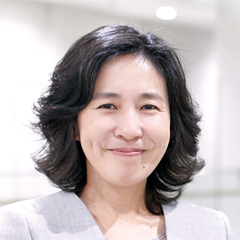Foreign technical interns are workers in reality
The COVID-19 pandemic has exposed some distortions in Japanese society. The issue of foreign workers is one of them.
Japan has hosted foreign nationals as technical interns. Some hosting companies suspended their operations due to coronavirus crisis, and some interns lost their jobs as a result.
The foreign technical internship system did not have a mechanism to allow the interns to take on jobs in a different field. They had no jobs, nor could they go back to their home countries. Then, special provisions were hastily made that enabled them to change their jobs to agriculture and other fields.
Technical interns are nominally here to learn, but everybody knows that they are expected as workers in reality. Despite this, the problem is that Japan has not allowed the interns to change their jobs as their proper rights.
However, when there were scarce human resources in other fields, the system could have been set up. I think that the interns felt rescued if they could find another job this time, but if that is the case, the pretense that they are coming to learn should be dropped in the first place.
Japan also restricted entry from other countries as a measure against the novel coronavirus, while allowing exceptions for “business travel.”
The wording makes it sounds like it is referring to executives of large companies. However, if you look into who entered the country, you will notice that many of them are from Southeast Asia. In reality, it is said that many of them were technical interns.
In fact, it means that for Japanese industry, technical interns are an indispensable workforce even during the coronavirus crisis and that the government immediately institutionalized such request from the industry circles.
This is a big distortion of Japanese society and industry, which obscured the hosting of foreign workers who are indispensable for Japan by calling it a technical internship program.
Europe has faced the human rights issue of immigrants
Europe has a long history of accepting foreign workers and immigrants. I think we have to learn how they dealt with it.
In fact, European countries also proactively accepted foreign workers when the economy was strong but encouraged them to return when the economy was weak.
For example, during the high economic growth period after World War II, countries proactively accepted workers outside Europe. However, in the 1970s, when their economy started to decline, they stopped accepting them.
Nevertheless, they allowed settled workers to invite family members from their home countries. Their human rights to live with their family were protected.
Moreover, even if it was an unofficial stay, measures to grant official permission to stay were taken many times for foreigners who continued to work and arranged their living foundations.
Certainly, there are demands from industry circles of accepting foreign workers and immigrants. That is the same as in Japan.
However, in Europe, where they built a history of cultivating human rights awareness, they also followed the history of trying to recognize the same human rights for foreign workers instead of regarding them as a mere workforce or human resources.
In the past 20 years or so, far-right parties in European countries have been gaining power, and their exclusionary style of speech and behavior are being supported by many. Nevertheless, I think the idea that basic human rights should be protected whether they are immigrants or foreigners is rooted in Europe.
If we look back to Japan again, we only started to think about accepting foreign workers proactively in the past 30 years or so, because before the period we secured a workforce from the rural areas in Japan.
Some experts think that mechanisms such as technical internship were designed to dismiss the idea of officially accepting workers like Europe. If that is the case, it means that they are denying human rights from the beginning.
If that is true, more people will start thinking of working in other countries than Japan. Protecting foreign workers’ rights is supposed to be an important challenge for industry circles that want to secure excellent people who would like to work in Japan.
We should learn from Europe
Basically, the concepts of immigrants and foreigners exist because there are countries and borders. We who live in contemporary society take it for granted, but they do not have such a long history.
For example, when the French Revolution occurred at the end of the 18th century, people who lived in French territory had barely any notion that they were French. At that time, they rather had the awareness of being Bretons in Brittany or Alsatian in Alsace.
It is just like Japanese people in the Edo period having the awareness of being Satsuma-jin or Aizu-jin, rather than being Japanese. Languages also differed by regions.
After the French Revolution, national integration management by the government started. The political movement in the 19th century was such that countries had been formed by gradually building the awareness of people being citizens of a state through unifying the language by use of media and education.
In this way, the system of the modern nation-state was established and spread from Europe to the rest of the world. This also influenced Japan in the latter half of the 19th century and was promoted under the Meiji government.
In this process, the concept of a national border was also strengthened.
In Europe, the border in the sense of the current definition was said to be arranged by the Peace of Westphalia, which ended the Thirty Years’ War. But this was an agreement among kings and feudal lords, and the people who lived there had little awareness of borders.
Movement of general citizens was strictly limited, and there were many checkpoints within the country. However, on the contrary, in the border areas, there was cross-border travel to some extent.
Modern nation-states determined the national border as the only and absolute border. Traveling across the border started to be centrally managed by the state. National borders became borders that affect national interests.
For example, in 2020, the Trump administration in the U.S. proposed measures to prevent foreign students from entering the country if they took only online lectures owing to the coronavirus crisis. However, they were withdrawn in response to the opposition by the industry circles who were afraid of not being able to hire graduates.
Certainly, the education field was also against the proposal. But the reason for the withdrawal was the intention of industry circles and not to protect the rights to learn of individual students.
However, as previously mentioned, Europe is going into the direction of not only regarding people as a mere workforce or as human resources, but also recognizing their human rights. The suffrage and social welfare issues are also constantly being discussed, although of course some people are against them and progress is not always smooth.
Meanwhile, in Japan, foreigners are not acknowledged as immigrants although they live in Japan, and their suffrage or social welfare issues are almost never discussed in the political sphere.
However, it seems that the reality that Japan, where the declining birthrate and aging population are advancing the most in the world, is dependent on the foreign workers became more obvious due to the coronavirus crisis.
If that is true, we can learn a lot from European history.
That is not something we just leave up to the State; rather, the general public should think about as well.
Perhaps there are many people who have foreigners living in their neighborhood and would like to have an exchange with them but do not know how to treat them. I would say that they do not necessarily have to force themselves to have an exchange with them.
Meanwhile, if they get into contact with foreigners naturally at the workplace or by having children going to the same school, they should consciously face them. They would have much in common when they think about their problems or being happy with their children or their work.
If such exchange would expand from the living sphere and similar experiences could be shared, unconscious prejudices could also start to disappear.
By changing the awareness of us citizens against foreigners living in Japan, we can also change the politics and the government. And that should open up the construction of a comfortable society for ourselves, too.
* The information contained herein is current as of June 2021.
* The contents of articles on Meiji.net are based on the personal ideas and opinions of the author and do not indicate the official opinion of Meiji University.
* I work to achieve SDGs related to the educational and research themes that I am currently engaged in.
Information noted in the articles and videos, such as positions and affiliations, are current at the time of production.


